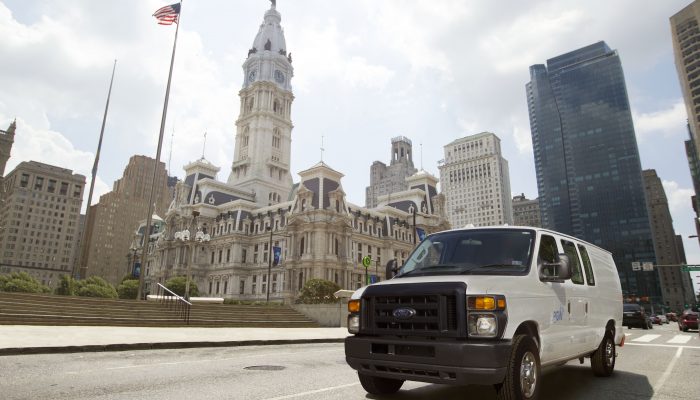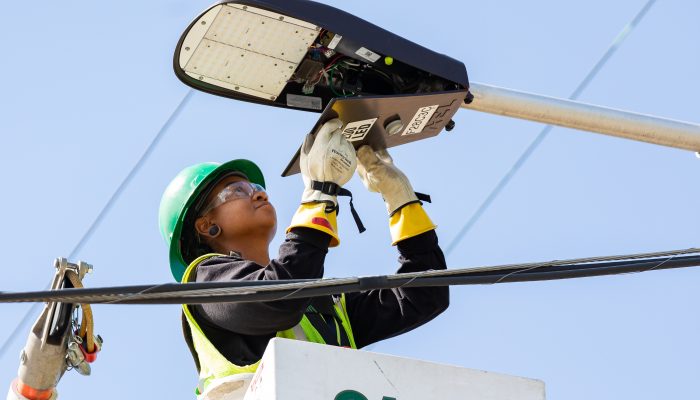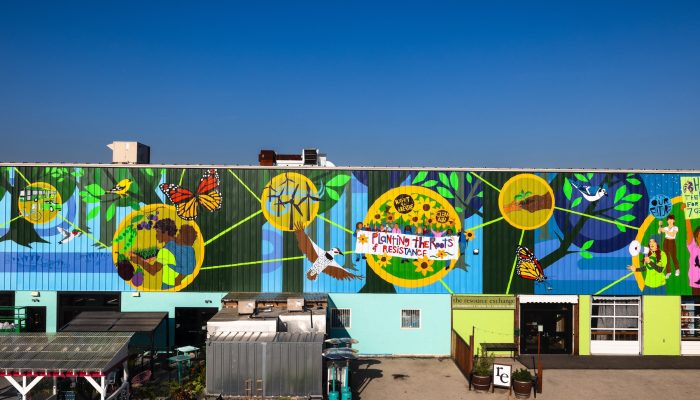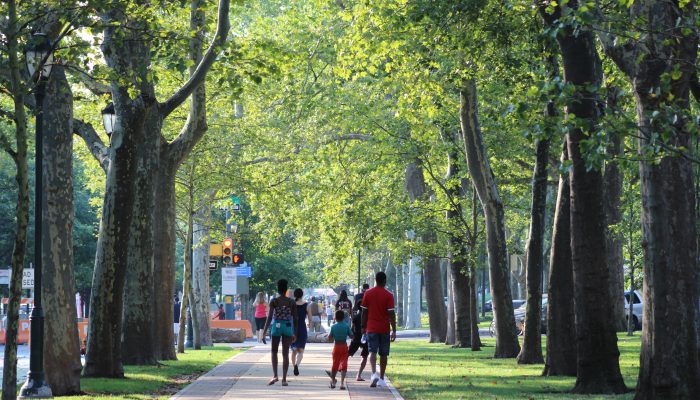This summer, the Office of Sustainability officially kicked off the next phase of creating a business diversification study for Philadelphia Gas Works (PGW), Philadelphia’s municipally owned gas utility. A working group made up of representatives from the City, PGW, and two regulatory bodies that oversee PGW – the Gas Commission and the Public Facilities Management Corporation – will guide the study.
The working group selected Energy and Environmental Economics (E3) as the consultant to lead the study. E3 has extensive experience working with utilities on researching decarbonization strategies and understanding their financial, customer, and equity implications. Local subcontractors Econsult Solutions and Portfolio Associates will support E3 in developing the study.
Why a Diversification Study?
PGW’s gas usage per customer has been declining due to a host of factors including appliance efficiencies, conservation efforts and a changing climate. These issues will only intensify as temperatures continue to rise and policymakers place a stronger focus on reducing the amount of carbon in the atmosphere. As a gas-only utility, PGW, and the City as its owner, need to understand how the utility can provide necessary services in a lower-carbon future while also thriving financially and retaining its 1,600-person workforce.
Additionally, Mayor Jim Kenney has committed Philadelphia to upholding the goals of the Paris Climate Agreement and to moving to 100 percent clean energy. Thermal energy is a critical aspect of decarbonization, and the City will only reach its goal of cutting citywide carbon pollution 80 percent by 2050 from 2006 levels by reducing carbon emissions from thermal energy by about 1.2 million metric tons (see figure 1 below).
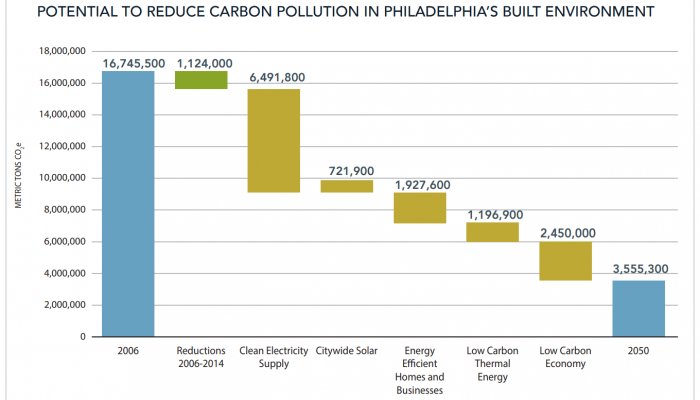
What is the goal of the Diversification Study?
The goal of the study is to provide PGW with a range of viable, economically and environmentally sustainable opportunities to diversify its business as Philadelphia transitions to a low-carbon future. To achieve this goal, the project will include the following objectives:
- Review of a range of new energy sources and services pathways, model how PGW could pursue these pathways, and provide an overview of how these pathways most effectively interact with one another. Energy sources intended to be reviewed include renewable natural gas, hydrogen, geothermal, and electrification among others. Energy services intended to be reviewed include weatherization, community solar, microgrid, energy storage, and smart cities technologies among others.
- Evaluate each pathway by forecasting its effects on key criteria, including greenhouse gas emissions, cost of implementation, net revenue generated, workforce retention rate, market readiness, technological feasibility, and equity impacts.
- Conduct a regulatory and legal analysis of all pathways to understand whether additional actions are required to implement specific pathways, or whether PGW is barred from pursuing specific pathways.
- Propose a set of carbon reduction and strategic business goals for PGW and the City to consider adopting.
- As an initial outcome of the study, the working group will identify and implement a pilot project based on at least one identified pathway projected to reduce greenhouse gas emissions.
- Develop a tool to allow for ongoing analysis of the pathways and their effects on key criteria.
Diversification study timeline
The Diversification study was kicked-off in July 2020 and will be completed by early 2021. Within that timeframe, the City’s Office of Sustainability and consulting team expect the project to proceed along the timeline below:
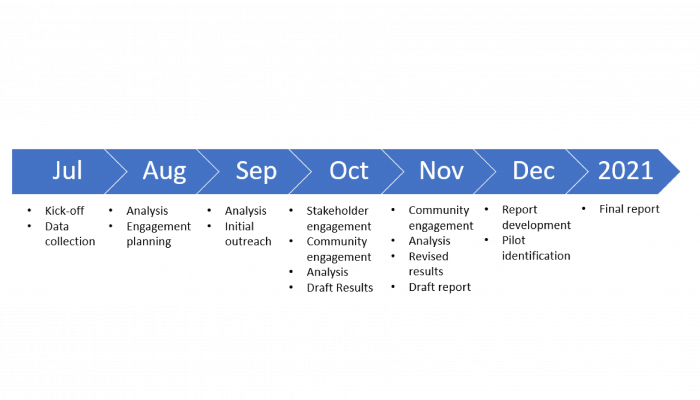
How can the public get involved?
Community engagement and public input are critical to achieving a diversification study that accurately reflects the Philadelphia context, as well as resident needs. Previous comments from community members received in writing and provided at Commission meetings and City Council hearings will be reflected in the study. The below steps will be taken to ensure that residents’ voices are reflected in the study:
- Community conversations: The City’s Office of Sustainability will support several community-based organizations in holding small discussions among residents about energy use in their homes. These conversations will take place in neighborhoods where Philadelphians face a high energy burden, which is defined as the percentage of household income that goes toward energy costs. The Office of Sustainability will share the feedback provided by residents with the consultants to be considered in the final study.
- Roundtable discussions: The project team will convene several roundtable discussions (likely virtually) that will include representatives from private, public, and nonprofit organizations.
- Gas Commission hearings: The City’s Gas Commission holds public meetings. The study will be a standing agenda item at these meetings until its completion.
- Issue drafts of the outline and study: Like the City’s process for receiving feedback on regulations, drafts of the outline and study will be available for public review and comment.
This study will be a comprehensive review of all potential diversification opportunities for PGW. Once complete, PGW will use the study to develop a diversification plan that outlines its goals, timelines, and the specific pathways it intends to pursue. Public involvement and community engagement will continue to be critical during the next planning stages.

